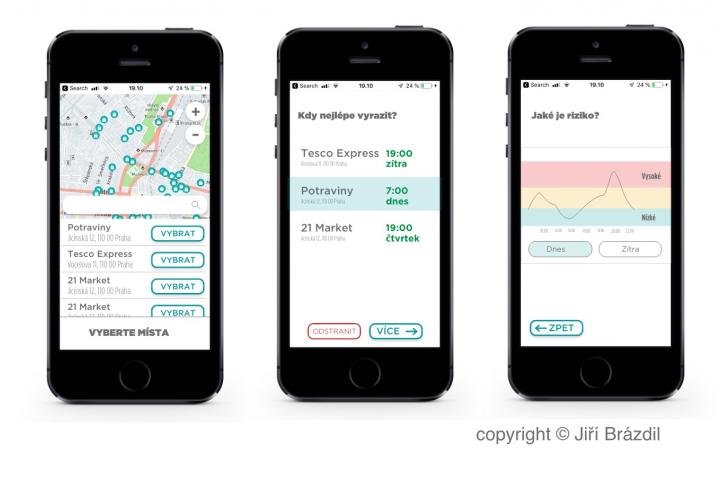
The project, which was launched only last week, is based on long-term knowledge of the chronorobotic laboratory of the Center of Artificial Intelligence at the Department of Computer Science. The basic principle of the method is based on the assumption that one of the most important causes of virus spread is the concentration of people in public places. The aim of the researchers is to program an algorithm that creates a spatio-temporal risk map at a given location. Using the gathered data, the artificial intelligence FreMEn (www.fremen.uk) will predict where the number of people will increase and whether you can expect queues at a given moment. This allows everyone to plan the right time for a safe visit to the pharmacy, shop or park.
“Existing anti-coronavirus initiatives, which the government is preparing in cooperation with technology corporations, are counting on monitoring movement on an individual level. This can lead to the stigmatization of potentially ill patients and, as a result of concerns about the reaction of the environment, also an epidemic-deepening behavior. We warn of such erosion of privacy. We propose to take the path of prevention and personal responsibility, which is sustainable in the long term and in accordance with the principles of an advanced society. Therefore, we decided to offer our system based on anonymous data processing with advanced artificial intelligence algorithms modeling human behavior. They have already been successfully deployed, for example, in the Vienna hospital Haus der Barmherzigkeit specializing in the long-term treatment of older patients, ”says the project's father, doc. Tomáš Krajník.
In order for the FreMEn system to function properly, it is necessary to obtain sufficient data from which artificial intelligence can learn. The project representatives therefore call on all citizens to cooperate. Through the FreMEn Explorer pilot application, each user becomes a city explorer and manually records three data on the concentration of people in a given location (number of people, concentration level and location category). This data will lead to the programming of the final application, which will be available for free.
In addition to academics, the project involves epidemiologists, doctors and sociologists from around the world (eg Great Britain, Switzerland or South Korea). Representatives are also discussing possible cooperation with the prestigious American University of MIT.
Webprages: http://cs.fel.cvut.cz/en/page/fremen-contra-covid